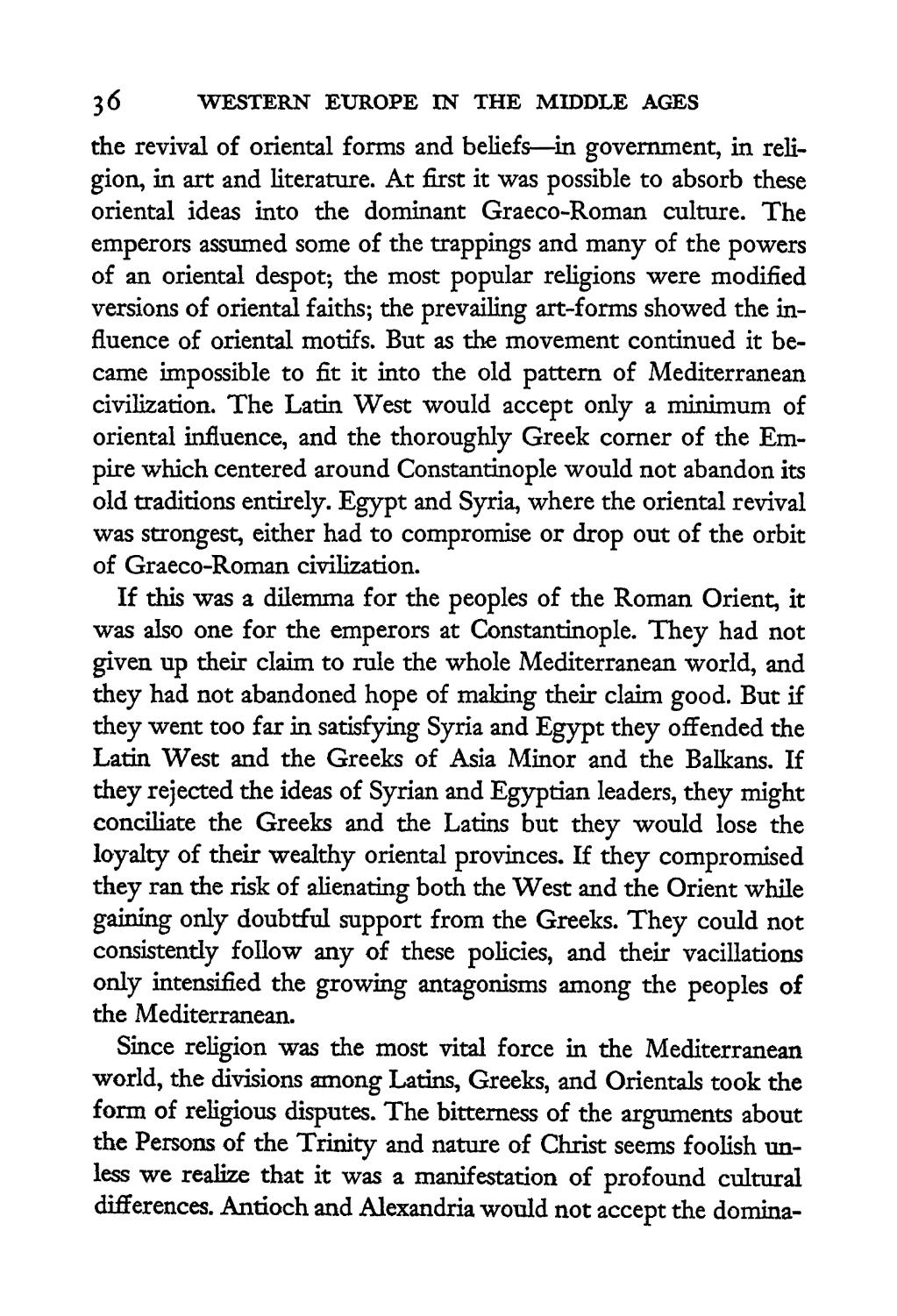the revival of oriental forms and beliefs in government, in religion, in art and literature. At first it was possible to absorb these oriental ideas into the dominant Graeco-Roman culture. The emperors assumed some of the trappings and many of the powers of an oriental despot; the most popular religions were modified versions of oriental faiths; the prevailing art-forms showed the influence of oriental motifs. But as the movement continued it became impossible to fit it into the old pattern of Mediterranean civilization. The Latin West would accept only a minimum of oriental influence, and the thoroughly Greek corner of the Empire which centered around Constantinople would not abandon its old traditions entirely. Egypt and Syria, where the oriental revival was strongest, either had to compromise or drop out of the orbit of Graeco-Roman civilization.
If this was a dilemma for the peoples of the Roman Orient, it was also one for the emperors at Constantinople. They had not given up their claim to rule the whole Mediterranean world, and they had not abandoned hope of making their claim good. But if they went too far in satisfying Syria and Egypt they offended the Latin West and the Greeks of Asia Minor and the Balkans. If they rejected the ideas of Syrian and Egyptian leaders, they might conciliate the Greeks and the Latins but they would lose the loyalty of their wealthy oriental provinces. If they compromised they ran the risk of alienating both the West and the Orient while gaining only doubtful support from the Greeks. They could not consistently follow any of these policies, and their vacillations only intensified the growing antagonisms among the peoples of the Mediterranean.
Since religion was the most vital force in the Mediterranean world, the divisions among Latins, Greeks, and Orientals took the form of religious disputes. The bitterness of the arguments about the Persons of the Trinity and nature of Christ seems foolish unless we realize that it was a manifestation of profound cultural differences. Antioch and Alexandria would not accept the domina-
